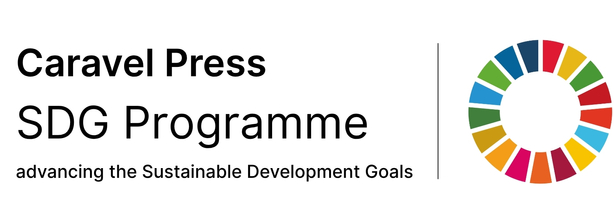
This journal publishes research related to SDG 9 - Industry, Innovation and Infrastructure and SDG 11 - Sustainable Cities and Communities.
The Journal adheres to the highest standards of publication ethics and integrity. This Code of Ethics is formulated in accordance with the principles and best practices of the Committee on Publication Ethics (COPE), as well as the journal’s own policies on responsible research and publishing. It applies to all participants in the publication process, authors, editors, reviewers, and publishers, and serves to ensure fairness, transparency, and accountability in all aspects of scholarly communication.
Responsibility and Authenticity
Authors are responsible for ensuring that their submissions are authentic, accurate, and the result of genuine scholarly effort. Manuscripts must represent original work and must not contain any form of plagiarism, data fabrication, or falsification. Any inclusion of previously unpublished text, figures, or data must be properly cited and attributed to the original source.
Authorship Criteria
Authorship should be limited to individuals who have made substantial intellectual contributions to the conception, design, execution, or interpretation of the research. All listed authors must approve the final version of the manuscript and consent to its submission and publication.
Requests for changes in authorship (addition, removal, or rearrangement) before publication must be submitted in writing with justification and the signed consent of all authors.
Changes to the first or corresponding author after submission are generally not accepted. The journal also does not endorse the designation of co-first or co-corresponding authors.
Confidentiality and Sensitivity
Authors must ensure that their submissions do not contain material deemed politically, militarily, or socially sensitive, nor any content that may breach confidentiality, legal, or ethical restrictions.
Originality and Exclusivity
Submissions must be original and not under consideration elsewhere. Simultaneous submission to multiple journals is prohibited. Duplicate or redundant publication of the same or substantially similar work is considered unethical and may result in rejection or retraction.
Acknowledgement of Sources
Proper acknowledgement of all sources that influenced the research must be made. This includes prior studies, datasets, and tools. Authors must disclose all financial and non-financial support, including grants, institutional funding, and industry collaborations.
Disclosure of Conflicts of Interest
Authors must declare any financial, professional, or personal relationships that could be viewed as influencing the research or its interpretation.
Fair and Impartial Handling
Editors must evaluate manuscripts solely based on academic merit, relevance, and originality, without discrimination on the grounds of gender, ethnicity, nationality, or institutional affiliation. Decisions should be guided by expert peer review and the journal’s editorial policies.
Confidentiality
Editors must maintain strict confidentiality regarding manuscript content, author identities, and reviewer identities. Information obtained during the review process must not be used for personal advantage or shared outside the editorial team.
Independent Peer Review
Editors are responsible for ensuring that peer review is objective, unbiased, and free from conflicts of interest. Reviewers should be selected for their subject expertise and impartiality, and the process should remain free from undue influence or interference.
Verification of Reviewer Information
When authors suggest reviewers, editors must verify their credentials and ensure there are no conflicts of interest. Author-recommended reviewers may be used at the editor’s discretion, provided they meet ethical and professional standards. Reasonable requests from authors to exclude certain reviewers will be respected.
Prevention of Academic Misconduct
Editors are responsible for identifying and preventing unethical practices such as plagiarism, redundant publication, data manipulation, or image falsification. Screening may include plagiarism detection software and independent verification prior to acceptance.
Editorial Accountability
Editors must ensure transparent decision-making and be prepared to issue corrections, clarifications, or retractions when errors or ethical concerns are identified in published work.
Peer Review Process
The journal follows a single-blind peer review system, where reviewers remain anonymous to authors. Reviewers should possess sufficient subject expertise to evaluate the manuscript critically and constructively, providing feedback that assists authors and editors in improving the work.
Conflict of Interest
Reviewers must decline invitations to review manuscripts where personal, financial, academic, or professional conflicts exist, including if they are from the same institution or research group as the authors.
Confidentiality
Manuscripts received for review are confidential documents and must not be shared or discussed with others without prior editorial approval. Reviewers must not use any unpublished material from the manuscript for personal research or gain.
Ethical Conduct
Reviews should be conducted with fairness, integrity, and respect. Reviewers must provide objective assessments free from hostility, bias, or personal criticism. If a reviewer suspects misconduct, they should confidentially inform the editor rather than investigating independently.
Timeliness
Reviewers are expected to complete evaluations within the agreed timeframe. If unable to do so, they should inform the editor promptly.
The journal maintains strict ethical oversight across all stages of publication.
Research Involving Humans or Animals: Such research must comply with institutional, national, and international ethical guidelines. Authors must provide documentation of approval from a recognised ethics committee upon request.
Plagiarism and Data Integrity: All manuscripts undergo plagiarism and data integrity checks.
Corrections and Retractions: The journal follows COPE recommendations for corrections, retractions, and expressions of concern.
The journal applies a zero-tolerance policy toward academic misconduct, including but not limited to plagiarism, falsification, fabrication of data, and duplicate publication.
If misconduct is suspected or proven:
The editorial board will investigate in accordance with COPE procedures.
Confirmed cases will result in appropriate actions such as manuscript rejection, article retraction, author blacklisting, notification of affiliated institutions, and potential legal consequences.
Authors will be given an opportunity to respond to allegations before a final decision is made.
Types of Complaints:
Complaints may relate to the editorial process (e.g. bias, delay, or unprofessional conduct), ethical breaches (e.g. plagiarism, data manipulation), or content-related concerns.
Procedure:
All complaints must be submitted in writing to the editorial office at aifsc@caravelpress.com. Each complaint will be acknowledged promptly and investigated confidentially. All parties involved will be treated fairly, and outcomes will be communicated transparently.
Appeals:
Authors wishing to appeal editorial decisions must submit a formal written request within 30 days of receiving the decision, clearly stating the grounds for appeal and providing supporting evidence. Appeals will be reviewed by a senior editor or an independent advisory panel, and the outcome will be final.
Post-Publication Discussions:
Readers may submit comments, letters, or concerns regarding published articles. Valid points will be addressed through author responses, editorial notes, or published correspondence.
Corrections:
If an error is discovered that does not alter the core conclusions of the paper, a correction notice will be issued and linked to the original article.
Retractions and Expressions of Concern:
If serious issues such as research misconduct, unreliable findings, or ethical violations are confirmed, the journal may issue a retraction or an expression of concern in accordance with COPE’s retraction guidelines.

This journal publishes research related to SDG 9 - Industry, Innovation and Infrastructure and SDG 11 - Sustainable Cities and Communities.
Artificial Intelligence for Sustainable Cities is supported by the World Society of Sustainable Energy Technologies (WSSET), a non-profit organisation that promotes sustainable development to minimise the impact of climate change and consolidate practical partnerships between academic and industrial organisations. For more information on WSSET and its activities, please visit the WSSET website.
